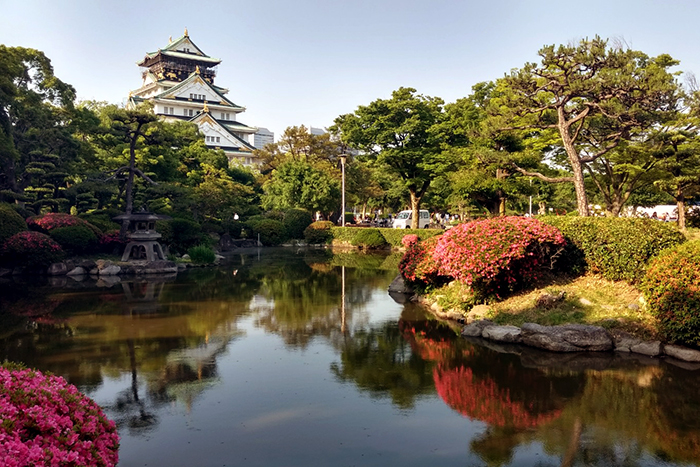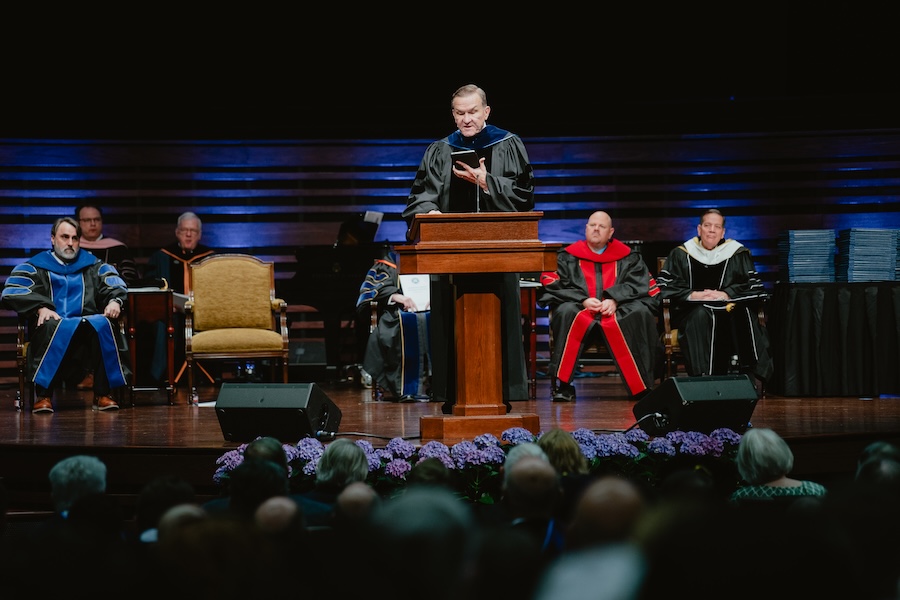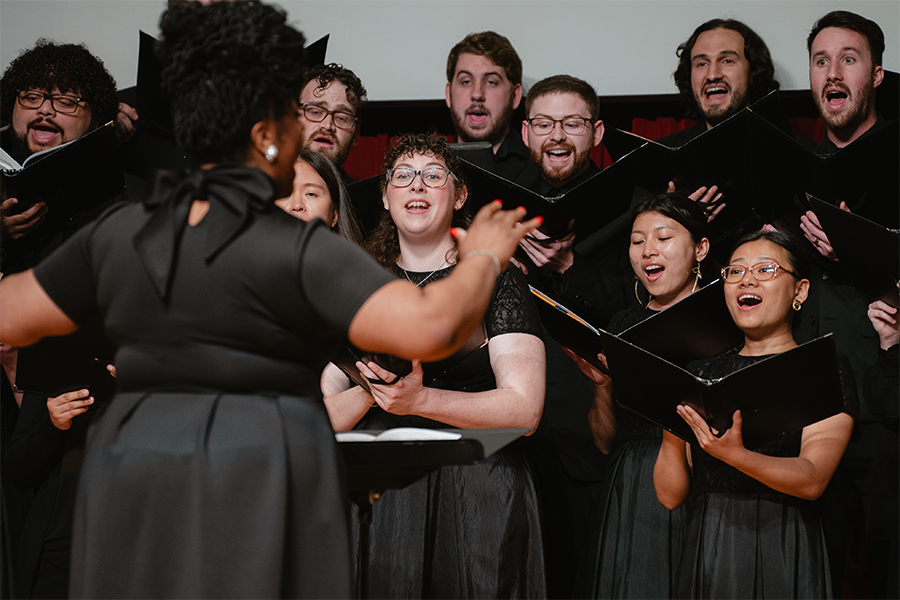Japan mission team brings Gospel to university students

In one of the most popular Shinto shrines in Kobe, Japan, a stream of visitors steps through the torii gate, which practicing Shintos view as a visual boundary between the secular world and the domain of the deity to whom they direct their prayers. After quietly cleansing their hands with water, they approach the altar to give a small offering to the deity and pray for good fortune.
Many Japanese participate in this ritual on a regular basis and believe an attentive deity is receiving their prayers. This year’s Japan mission team witnessed firsthand the misplaced hope many Japanese have, if they have hope in any god at all. From May 13-31, the seven-member student team focused its evangelism efforts at two Kobe universities. Visiting campuses during the lunch hours, the team asked to join Japanese students at their tables, explaining that they were looking to make new friends and learn Japanese culture, religion and history. In the course of their ensuing conversations, they looked for opportunities to share the Gospel.
Several Japanese students were receptive to the Southwestern team and eager to talk with them, although less eager to discuss such personal subjects as religion. For many of the students the Southwestern team met, religion was an important part of their family’s day-to-day life. For others, religion was merely tradition and only had a significant role on such special occasions as New Year’s Day, when most people visit the shrine to pray for a prosperous year.
“Japan is a very dark country, spiritually,” Master of Arts student Gulshat Amanmyradova says. “Although on the surface level it is very pretty, peaceful and clean, on a deeper level, there is much turmoil and suffering hidden behind every face.”
Because of this spiritual darkness, she adds, starting conversations about the Gospel was oftentimes difficult . Without an established trust or relationship, many did not care to listen. In spite of these barriers, however, the Southwesterners still saw God work in many of their conversations. In the brief time they served in Kobe, the Southwestern team filled their time meeting students during lunchtime and reconnecting with many of those same students in the evenings for further discussion.
Important as it was to establish trust, Master of Arts student Courtney Dusenbury says they also could not wait too long to share the Gospel, especially given their brief time in Kobe. As a student at Southwestern, Dusenbury says she is constantly reminded of the importance of sharing the Gospel soon, even if it is in a culture that is not accepting of the message.
“You don’t want to needlessly shock or upset someone, but in the same breath, you can’t wait months and months,” Dusenbury says. “It’s better to share somewhat soon and have it up front and continue to be their friend and continue to show that you care.”
Most of the university students they met had little to no knowledge of Christianity beyond its connection to the Christmas holiday, so the Gospel message was a new concept oftentimes difficult to grasp. “When we presented the Gospel to them, some found it new and interesting,” says Hannah Chan, who recently graduated with her master’s in biblical counseling. “They had no concept of sin, as it translates to ‘crime’ in Japanese, so we had to explain that it is a condition of the heart: selfishness, rebellion, doing things your own way rather than God’s.”
Although none of the conversations resulted in a decision to follow Christ, Amanmyradova says significant progress was made. Even when conversations were awkward or uncomfortable, she says it was worth it for the sake of the dozens of people who heard the Good News for the first time in their lives. “You never know what God may use to make something out of something awkward or ‘ineffective’ in our eyes,” Amanmyradova says.



